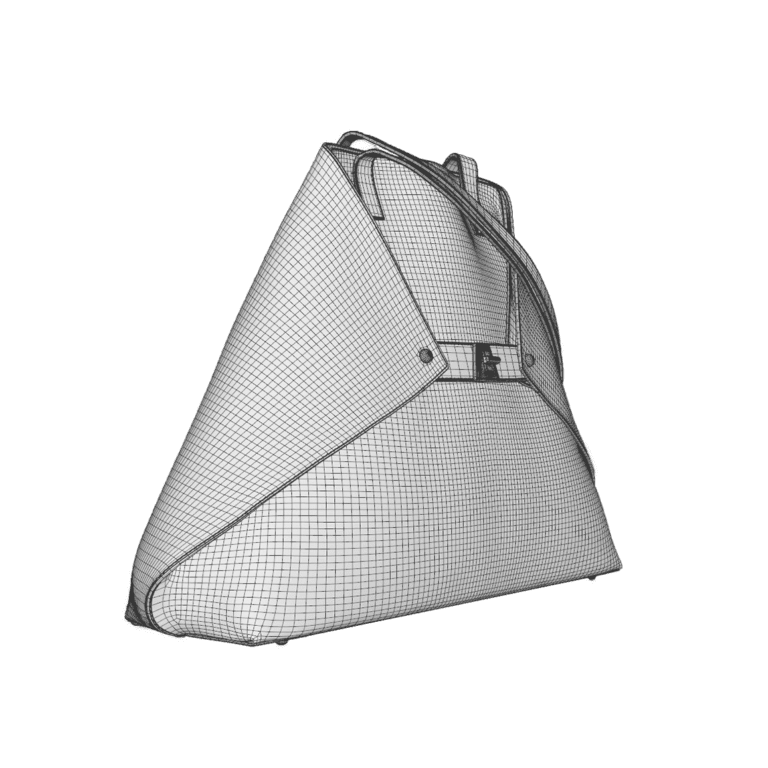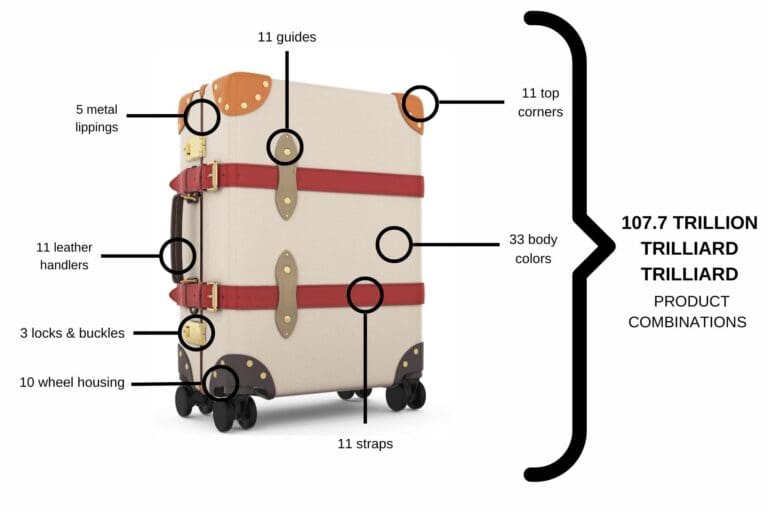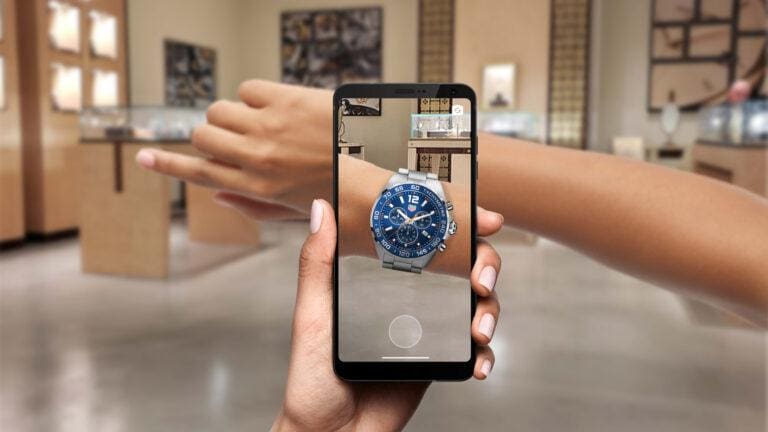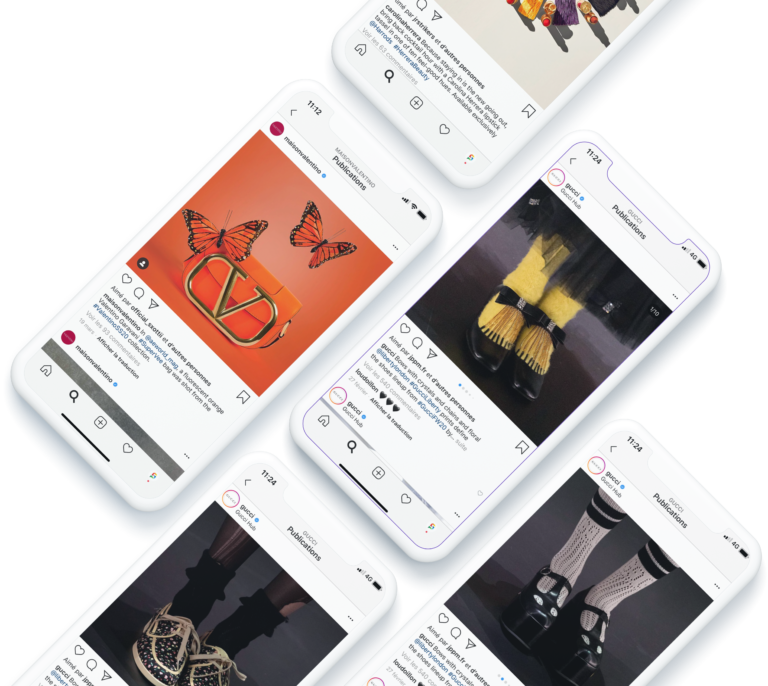The importance of 3D configurators for customer experience in the luxury industry
The importance of 3D configurators for customer experience in the luxury industry Table of Contents In the luxury industry, where attention to detail, exclusivity, and

Having high-quality visuals has become fundamental for e-commerce. Shoppers’ expectations are rising at a considerable pace. To illustrate, customers buying online prefer to have at least eight different visuals on each product page. However, traditional photography seems unable to keep pace with these needs.
3D renderings might represent the long-awaited solution to this constraint. Research results confirmed that. Brands using 3D rendering software on their product pages performed a 40% increase in conversion rates and a 30% boost in sales.
The creation of a 3D product rendering starts with the scan of the physical product and its materials. The graphist team then operates their magic adjusting the lighting, texturing and shading to give birth to a photorealistic 3D model.
Once their products have been captured in 3D, our clients can generate unlimited 3D product visuals in a few clicks.
The applications of 3D renderings are endless. Interactive 3D animations can be seen in 360° mode and Augmented Reality. These 360° visualizations of the products have become a must-have for online retailers. They give consumers confidence regarding the size, style, and dimensions of the products.

3D renderings can be exploited to create e-commerce product configurators. It responds to the increasing personalization pursuit from consumers. To exemplify, 44% of them reported they would become repeated buyers after a product customization experience. SmartPixels’ real-time customization platform enables end clients to tailor products: fit, color, and material.
Gen Z consumers, in particular, seek to co-create with brands. They wish to obtain unique products that are entirely their own. A 3D configurator is an easy-to-use tool that fosters any product configuration to be viewed in real-time and in a photorealistic way.
Globe-Trotter, an iconic luggage brand, relied on SmartPixels’ 3D renderings expertise, to integrate a real-time product configurator on their website. SmartPixels’ client was looking for a 3D technology solution that would have allowed their clients to personalize products and interact with unique product configurations online.
We provide Globe-Trotter with an e-commerce 3D product configurator for three of their iconic luggage. Thanks to our interactive e-commerce configurator, customers could switch, combine, and design their customized suitcases in real-time, with incredible realism.

Augmented Reality consists in overlaying 3D visuals, or other sensory information, into the real world, to strengthen one’s experience. Retailers can use this cutting-edge technology to increase sales and boosts customer satisfaction. To illustrate, 71% of online users reported they are willing to shop more using AR [1].
The market for AR solutions is expected to reach a value of $50 billion by 2024 [2]. Furthermore, it has gained prominent importance in the fashion and luxury industry. Buying is a visual process. From a retail standpoint, showing an interactive product in 3D significantly raises the possibility that it will be purchased.
Thanks to Augmented Reality, consumers’ gap between expectations and reality can be drastically reduced. Projecting in real-time 3D renderings of products, enable customers to interact directly with them. Therefore, with a 360° 3D visualization, they will be able to zoom in and out on complex product details, enabling them to see the item from every perspective and gain an idea of the most accurate size.
SmartPixels can help you to stand out by distinguishing your AR experience. Thanks to the exploitation of the 3D product configurator software, your clients will be able to see 3D visuals, personalize them and visualize them in your space using AR. Our clients experienced an increase in consumer engagement and user-generated content thanks to our AR experiences.

Once the 3D modelling phase has been done, thousands of 3D visuals are ready to enrich your content creation strategy. Enhancing your eCommerce platforms and social media channels with hyperrealistic 3D visuals allows you to reinforce your content strategy with highly engaging content.
Substituting static images with 3D hyperrealistic visuals, you can create a truly immersive storytelling experience around your products. Going beyond basic product imagery, and developing 3D hyperrealistic visuals will increase traffic, brand engagement, and consequently sales.
To illustrate, aware of the relevance of product visualization on communication channels, Valentino relied on SmartPixels’ expertise. Thanks to the digitization of their collection in 3D, consumers were spoiled with a diversity of engaging visual content. This ranges from the creation of a 3D product configurator to 360° interactive product visuals on their product page to unique animations on social media.
As a result, this initiative encouraged social sharing and led to a more personal experience with shoppers.
Interactive in-store experience realised for Carolina Herrera
Changing consumer needs are redefining the role of brick and mortar. With the covid pandemic, approximately 30% of all sales have moved online. Following the gradual recovery, physical stores have regained their importance. In fact, to engage and connect with customers, 40% of retailers say they are expanding or developing new in-store experiences [3].
The luxury industry has been shaken up by the rise of new technologies. In particular, 3D technology has upset the client-brand relationship. Real-time 3D renderings generation enables brands to guide their end clients in the complexity of their offer without having to display every product in-store.
As many 3D product configurations necessary can be displayed to aid the client to visualize its made-to-order products. This can significantly help the salesperson to accompany the client in-store. Using 3D technology, it is now possible to sell with confidence products that have never existed.
The sales of a personalization offer can easily be boosted with the use of a product configurator, helping to quickly and easily test countless options. The brand can then decide how to present this offer in-store.
It could either be displayed as a corner in-store where consumers interact with a system, like Carolina Herrera or as a powerful sales app tool for your salesperson. This way, they can guide the clients through the infinite possibilities of the offer. Both approaches have their benefits, it then depends on what is a better fit for your brand.
What problem are you looking to solve? If any of the above solutions seemed relevant to your business, don’t hesitate to reach out to the team for more info!
*Sources:
[1] The State of Personalization 2021 – State-of-personalization-report_reduced.pdf (segment.com)
[2] https://www.banuba.com/blog/how-augmented-reality-helps-drive-user-engagement#:~:text=The%20business%20market%20insights%20include,are%20leveraging%20AR%20more%20actively.
[3] https://www.kearney.com/consumer-retail/article/-/insights/redefining-the-role-of-the-brick-and-mortar-store
The importance of 3D configurators for customer experience in the luxury industry Table of Contents In the luxury industry, where attention to detail, exclusivity, and
3D rendering vs 2D: what are the benefits of one over the other? Table of Contents 3D rendering offers a significant leap in realism compared
How do 3D product configurators reduce e-commerce returns? Table of Contents Overview of e-commerce product returns % of people who claim to retunr their online
Omnichannel strategy: the keys to a successful experience Chloé Tokyo store with a personalization experience created by SmartPixels The global pandemic has forced brands around
How AR helps luxury brands to build immersive experiences What is Augmented Reality? Augmented Reality solution by SmartPixels Augmented Reality is a technology that enables
Deep-dive into glTF file format During recent years, the glTF file format has gained more and more prominence, due to its functionality and the wide variety